Malcolm R. Campbell's Blog, page 231
August 21, 2012
The Gods of Lost Causes
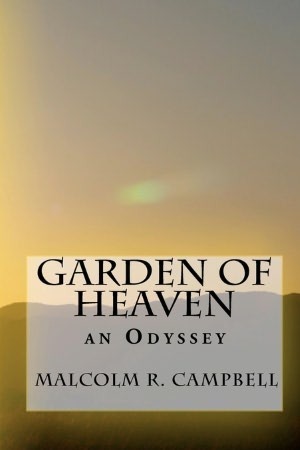 One of the most memorable ideas in the novel Dune is that of looking pack on your past rather like looking across the desert and seeing the footprints that brought you to the place where you are now.
One of the most memorable ideas in the novel Dune is that of looking pack on your past rather like looking across the desert and seeing the footprints that brought you to the place where you are now.As a writer, I've enjoyed speculating about such concepts. In three of my novels ("The Sun Singer," "Sarabande," and "Garden of Heaven: an Odyssey") I tinker with time. That is, what if you looked at the footprints leading to your present scenario in life and could change one of them? In most novels, things go terribly wrong when people try to change history for themselves or others. They usually end up worse off than they were while some cosmic genie or trickster god has a good laugh.
As upcoming expenses loom in our life, my wife and I were looking the other night at our footprints in the sand over the last several decades. What we saw, was our wont to get involved in lost causes. More often than not--whether in school, work, or other organizations--we have ended up fighting for underdogs who, as it turned out later, were less at risk than we were.
This is such a 1960s flower children chain of events, that I wonder why it took me to near-retirement age to see it. Flower children tended to "fight the establishment" whether it was over war, government, social ills, or business excesses. They helped change the nation by drawing media attention to things that needed to be fixed.
However, the flower children were often sacrificed in the process because they had no individual power to survive the uproars surrounding their protests. When all was said and done, they were fired from jobs, expelled from school, and cast out of one group or another while the "good guys" and "bad guys" involved in the uproars who had secure jobs and/or political/financial power bases went on with their lives.
The flower children were in many ways considered expendable by good and bad alike. I broached this subject in my magical realism novel "Garden of Heaven: an Odyssey." The novel is fiction, but it addresses a real life situation in which (in actuality) my wife and I fought for those who appeared to be underdogs. The "bad guys" won, but the underdogs had enough clout to keep their jobs while we lost ours.
I hoped the novel would get some of the anger out of my system. It has, but as I look at how well those underdogs are living now, it's hard to push away the notion that I was expendable in those fights like a 1960s flower child or like a foot soldier in a great battle. If we could change anything in our pasts, my wife and I would be very tempted to erase our participation in, say, one of those lost causes.
If we could, we probably wouldn't because then, even though we would be financially secure, we probably wouldn't be able to sleep at night.
I'm wondering if others who stop by this blog from time to time have experienced this: you get hired for a job, but you're not a big-time player. You find that the TOP BRASS are taking pot shots at your manager. You fight for your manager and end up getting fired while s/he stays on and ultimately gets a good job somewhere else while you have a blot on your resume.
Is there something in us that makes us do this over and over again? Are we just self-destructive, or are we unable to keep our mouths shut when those we love and support are being ripped apart by those we consider to be the "bad guys"?
As you can see, writing "Garden of Heaven: an Odyssey" didn't get all this out of my system. I'm doing better, though, I really am--but not every day. Only the gods of lost causes know the "why" of it all, and so far, they're remaining silent.
Malcolm
Published on August 21, 2012 19:32
August 10, 2012
U.S. 395 between Reno and Carson City
 My daughter and her husband live in Carson City, Nevada. When they stand in their yard and look at their world, they see barren hills covered with sagebrush. They drive to nearby Reno several times a week where they see more of the same.
My daughter and her husband live in Carson City, Nevada. When they stand in their yard and look at their world, they see barren hills covered with sagebrush. They drive to nearby Reno several times a week where they see more of the same.I've lived in the South since the first grade. When I look out a car window, I expect to see grass, trees, beaches and swamps. Needless to say, U.S. 395 between Reno and Carson City looks like another world even though nearby Lake Tahoe is a very inviting mountain lake.
My wife and I recently returned from our second visiting trek out to Carson City, this time to meet the new granddaughter Beatrice. What a cute kid. Of course, she's not yet old enough to notice she's living in a world of sagebrush. I often wonder what her older sister Freya makes of those endless tan hills. Freya will be 5 in January and, if her memory is no better than mine, her recollections of Indianapolis where she was born may well be faint ones by now.
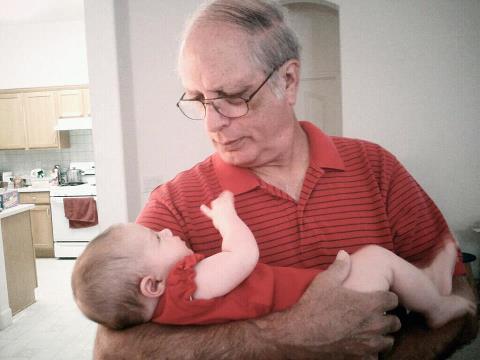 I must say, though, that compared to the over-crowded Atlanta airport, the airports at Las Vegas and Reno are a breeze. Unlike the TSA personnel in Atlanta, the TSA folks out there don't yell at passengers or treat them like diseased cattle. I do fondly remember the days when the airlines flew larger planes on more routes: four hours gate to gate between Las Vegas and Atlanta is rather absurd in 2012. We used to get to San Francisco faster than that.
I must say, though, that compared to the over-crowded Atlanta airport, the airports at Las Vegas and Reno are a breeze. Unlike the TSA personnel in Atlanta, the TSA folks out there don't yell at passengers or treat them like diseased cattle. I do fondly remember the days when the airlines flew larger planes on more routes: four hours gate to gate between Las Vegas and Atlanta is rather absurd in 2012. We used to get to San Francisco faster than that.But, other than the air travel and the dry hills, our Carson City trip was a great chance to catch up with Freya and to meet Beatrice. We have tons of pictures, mostly of the family, of course, because the hills and sage aren't as photogenic.
Malcolm
Published on August 10, 2012 07:56
July 30, 2012
The Espresso Book Machine network is growing
 Wikipedia PhotoIn a world where e-books are the new wave, many of us still like reading printed books. However, as any small press or self-published author will tell you, his/her books are not as likely to be found in bookstores and libraries as those from large publishers. The Espresso Book Machine from Xerox can help.
Wikipedia PhotoIn a world where e-books are the new wave, many of us still like reading printed books. However, as any small press or self-published author will tell you, his/her books are not as likely to be found in bookstores and libraries as those from large publishers. The Espresso Book Machine from Xerox can help.The unit, which prints and collates books on demand that look and feel just like those from Amazon and Barnes & Noble, is now in 70 locations. Projections call for it to be in 150 locations by the end of 2012. In addition, many EBM locations take orders by phone or Internet and will ship the books to you. While that's not as much fun as watching your book printed in five to seven minutes at the store, it's very handy for those without an EBM in their town.
According to Xerox, the EBM "is intended to distribute virtually every book ever published, in any language, anywhere on Earth, as easily, quickly and cheaply as email."
You can find a list of EBM locations by clicking here. To see a demo, click here.
If you're a writer, you can search for your books in the EBM network and then tell your readers they can now have a paperback copy faster than it takes to make and drink a cup of espresso at the nearest Starbucks.
--Malcolm
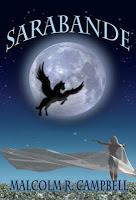 Malcolm R. Campbell is the author of the contemporary fantasies,
Sarabande
and
The Sun Singer
, both of which are available via Espresso Book Machines.
Malcolm R. Campbell is the author of the contemporary fantasies,
Sarabande
and
The Sun Singer
, both of which are available via Espresso Book Machines."Sarabande is a satisfying read. We are given a heroine we can understand and with whom we can sympathize. We travel alongside her through conflict and challenge, cheering her on. She suffers and endures, and finally rises above. How she does this ... you'll have to read for yourself." - Zinta Aistars, "The Smoking Poet"
Published on July 30, 2012 06:34
July 21, 2012
Aurora: "Why is this gun legal?" is just one of the questions we can ask
 Wikipedia PhotographDuring the last several days, the 24-hour news stations have camped on the doorstep of Aurora, Colorado with a barrage of talking-head experts, continual replays of bulletins and camera footage from earlier news reports, much of it under the heading of "breaking news" though little of it was, at any moment, new.
Wikipedia PhotographDuring the last several days, the 24-hour news stations have camped on the doorstep of Aurora, Colorado with a barrage of talking-head experts, continual replays of bulletins and camera footage from earlier news reports, much of it under the heading of "breaking news" though little of it was, at any moment, new.
While they waited for briefings and other announcements, most news anchors filled the long hours asking experts "how could this happen?" In this, they were human and in this they were doing what news anchors do.
We ask the unanswerable question, I think, because we want to set our world back on its axis with some measure of assurance that the seasons will continue to come and go without random and senseless acts of madness and chaos. The closer we are to Aurora, the street, the theater, the apartment building, the emergency rooms and the victims, the more urgent that question becomes.
We Bring our Own Views into the Potential Answers to That Question
I heard one "expert" say that being there for the victims and the victims' families is more important than trying to answer the "how could this happen?" question if an when they ask it. And, they will. He suggested that it's much better to say something, almost anything displaying compassion, than to remain mute (or absent) because we have not yet found the perfect words to match their grief and anger.
I agree with this "expert" even though our religious beliefs are very different.
Other "experts" thought the answers to "how could this happen?" question should be based on asking why violent movies, books and video games are out there. Some said that as long as it's possible for such crimes to occur, we must make access to every theater as difficult to accomplish as bording a plane with--I suppose--as miniature version of the TSA outside every door. Personally, I don't think pointing a finger of blame at violent movies will bring us the answer any more than I think a militarized police force and Fort Knox security systems will make us safe even if we want to live in a country that sounds more like the USSR of the cold war days than the USA of our dreams.
My agenda clashes with book and movie banning (or censorship); it also clashes with many of the police and security measures put into place after 9/11. My agenda, as a conscientious objector always involves asking this: "Why is it legal for a civilian to buy a weapon intended for military use?"
Why is this Gun Legal?
The AR15 is more or less the civilian version of the military's M16 rifle. While some say this weapon should be legal only at special shooting ranges (if anywhere), it is generally legal for almost an anyone to purchase this and similar weapons throughout the United States. As a pacificist, I ask, "to what end?"
While one might argue that shooting ranges and collectors might have a reason for such a weapon, nobody can construe it as rational or necessary for either hunters or those who believe owning a gun is a reasonable personal self-defense option. Others have always argued that if such guns are banned, the criminals will have them while everyone else is "stuck with" primitive firepower. To me, that's a lame argument.
I also know that if the AR15 and similar weapons were banned and couldn't even be purchased on the black market, we would not see an end to violence, nor would we have an answer (in response to massive crimes of violence) to "how could this happen?"
I don't have an answer. If I lived in Aurora, I hope I would have the courage to be there for the victims. If one were to ask me, "how could this happen?" I could honestly say, "I don't know." While it might not have happened if the suspect had not been able to purchase an AR15, my wont to ban such guns is my agenda, not a compassionate response to anyone in need.
I ask "why is this gun legal" and perhaps you ask "what school or health system failed ths suspect so that he ended up doing what he did?" or "Why aren't there armed police officers standing by the doors to all public places?" or "Why are violent movies legal?" or "Why don't our schools and parents focus on bringing up kids NOT to like violent movies?"
Each of us tries to understand violence by asking such questions. Sooner or later, such questions may be part of the means of finding answers. For the moment, they are more rhetorical in nature as a means of our trying to cope. It's human to ask them. It's also human to be there for the rather large group of direct and indirect victims as agenda free as we possibly an be.
--Malcolm
 Wikipedia PhotographDuring the last several days, the 24-hour news stations have camped on the doorstep of Aurora, Colorado with a barrage of talking-head experts, continual replays of bulletins and camera footage from earlier news reports, much of it under the heading of "breaking news" though little of it was, at any moment, new.
Wikipedia PhotographDuring the last several days, the 24-hour news stations have camped on the doorstep of Aurora, Colorado with a barrage of talking-head experts, continual replays of bulletins and camera footage from earlier news reports, much of it under the heading of "breaking news" though little of it was, at any moment, new.While they waited for briefings and other announcements, most news anchors filled the long hours asking experts "how could this happen?" In this, they were human and in this they were doing what news anchors do.
We ask the unanswerable question, I think, because we want to set our world back on its axis with some measure of assurance that the seasons will continue to come and go without random and senseless acts of madness and chaos. The closer we are to Aurora, the street, the theater, the apartment building, the emergency rooms and the victims, the more urgent that question becomes.
We Bring our Own Views into the Potential Answers to That Question
I heard one "expert" say that being there for the victims and the victims' families is more important than trying to answer the "how could this happen?" question if an when they ask it. And, they will. He suggested that it's much better to say something, almost anything displaying compassion, than to remain mute (or absent) because we have not yet found the perfect words to match their grief and anger.
I agree with this "expert" even though our religious beliefs are very different.
Other "experts" thought the answers to "how could this happen?" question should be based on asking why violent movies, books and video games are out there. Some said that as long as it's possible for such crimes to occur, we must make access to every theater as difficult to accomplish as bording a plane with--I suppose--as miniature version of the TSA outside every door. Personally, I don't think pointing a finger of blame at violent movies will bring us the answer any more than I think a militarized police force and Fort Knox security systems will make us safe even if we want to live in a country that sounds more like the USSR of the cold war days than the USA of our dreams.
My agenda clashes with book and movie banning (or censorship); it also clashes with many of the police and security measures put into place after 9/11. My agenda, as a conscientious objector always involves asking this: "Why is it legal for a civilian to buy a weapon intended for military use?"
Why is this Gun Legal?
The AR15 is more or less the civilian version of the military's M16 rifle. While some say this weapon should be legal only at special shooting ranges (if anywhere), it is generally legal for almost an anyone to purchase this and similar weapons throughout the United States. As a pacificist, I ask, "to what end?"
While one might argue that shooting ranges and collectors might have a reason for such a weapon, nobody can construe it as rational or necessary for either hunters or those who believe owning a gun is a reasonable personal self-defense option. Others have always argued that if such guns are banned, the criminals will have them while everyone else is "stuck with" primitive firepower. To me, that's a lame argument.
I also know that if the AR15 and similar weapons were banned and couldn't even be purchased on the black market, we would not see an end to violence, nor would we have an answer (in response to massive crimes of violence) to "how could this happen?"
I don't have an answer. If I lived in Aurora, I hope I would have the courage to be there for the victims. If one were to ask me, "how could this happen?" I could honestly say, "I don't know." While it might not have happened if the suspect had not been able to purchase an AR15, my wont to ban such guns is my agenda, not a compassionate response to anyone in need.
I ask "why is this gun legal" and perhaps you ask "what school or health system failed ths suspect so that he ended up doing what he did?" or "Why aren't there armed police officers standing by the doors to all public places?" or "Why are violent movies legal?" or "Why don't our schools and parents focus on bringing up kids NOT to like violent movies?"
Each of us tries to understand violence by asking such questions. Sooner or later, such questions may be part of the means of finding answers. For the moment, they are more rhetorical in nature as a means of our trying to cope. It's human to ask them. It's also human to be there for the rather large group of direct and indirect victims as agenda free as we possibly an be.
--Malcolm
Published on July 21, 2012 20:03
July 12, 2012
Fifty Shades of Green (with envy)
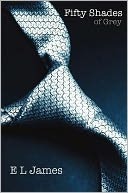 I haven't read Fifty Shades of Grey and don't intend to.
I haven't read Fifty Shades of Grey and don't intend to.Most writers and most novels don't really come out of nowhere, but when they appear to beam into the national consciousness from another galaxy, there's always a lot of talk. No matter how much they dance around their comments in blogs, Twitter, Facebook and interviews, some writers approach all that talk with a "fairness quotient."
If writer ABC and writer XYZ write equally wonderful books, yet ABC's next door neighbor just happens to be an influential agent or publisher who gives ABC's book a lot of attention it normally wouldn't get, writers are likely to think "unfair" even though they won't say it. Saying it sounds like sour grapes.
Since most writers aren't quite sure why everyone seems to be reading Fifty Shades of Grey, there are a lot of sour grapes being stomped into bad wine behind the scenes. Why? Well, because those who know erotica say there's nothing new here. Those who know romance, say many mainstream romance novels are more explicit. And those who know writing, say the book isn't well written. All that leads to "unfair" in many writer's minds.
True or Not?
I don't know if these contentions are true or not. I don't have an opinion because I don't read or write either erotica or romance. What interests me is the number of people who are making a lot of bland comments about the book that have a lot of overt subtext lurking between the lines.
It looks bad to be envious in public even though many of our Hollywood stars remain well-loved even when they tell secrets out of school and make nasty comments about their co-stars. So far, writers are expected to be better than that, and frankly, while we're human, I hope we are.
So, what's the difference between choosing to read, say, The Tiger's Wife and choosing not to read Fifty Shades of Grey when both books seemed to come out of nowhere, vaulting (to use a sports term here) writers out of sandlot baseball straight into the major leagues? Goodness knows, more people will probably ready Fifty Shades of Grey than The Tiger's Wife. I liked what I read in blurbs, interviews and reviews for Téa Obreht's novel and not what I read about James' novel. That's not a value judgement. It's simply a matter of reading preferences and personal tastes in fiction.
If I wrote erotica, I would probably make some bland comments about James' novel while quietly speculating in print about just how it sold so well and my novel, say, Lust in a Red Barn, sold only a few hundred copies. I would probably be, very carefully, fifty shades of green with envy about Fifty Shades of Grey.
Nobody seems to know why certain books become "Black Swan Events" that sell better and capture reader and media attention better than anyone could have predicted before hand or can even understand after the fact. It's fair to say Fifty Shades of Grey is a black swan. But after reading the blogs and Facebook comments, I know that for a fair number of writers, the subject is also a green and envious swan.
What about you?
Have you read it?What influenced you to buy it?Did you like it?If so, was it poorly written, well written, or very well written?After reading it, do you better understand how and why the book became such mega-hit?--Malcolm
Published on July 12, 2012 12:44
July 7, 2012
Finding stories in your ten defining moments
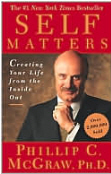 In his book Self Matters, Dr. Phil (Phillip C. McGraw) writes that each of us has ten defining moments in our lives that have greatly influenced who we are and what we think about ourselves.* While his book guides readers toward valuable self-discoveries, my muse encourages me to use my recollection of defining moments--along with other strong memories--as writing prompts.
In his book Self Matters, Dr. Phil (Phillip C. McGraw) writes that each of us has ten defining moments in our lives that have greatly influenced who we are and what we think about ourselves.* While his book guides readers toward valuable self-discoveries, my muse encourages me to use my recollection of defining moments--along with other strong memories--as writing prompts.All of us can recall moments that brought us great joy, pain, embarrassment, excitement, love, humiliation, and, perhaps, an epiphany or two. While Dr. Phil urges us to find and acknowledge these moments so that they no longer control or bias our lives outside of our conscious control, I like going a step further and exploring them through story.
Even after acknowledging these moments for what they were (and are) I find that there is still a lot of energy attached to them. When I go back in time, I feel what I felt when the moments happened; these feelings can bring great passion and strength to a short story or novel. The point is not necessarily a factually true rendition of your life's best and worst moments, but rather a harnessing of their energy.
Memories as Catalysts
I have come to terms with those moments by using them as springboards to fiction that may, when all is said and done, look nothing like the actual events. The sense of the moment is what I'm looking for, and because my feelings years later are still very strong, I have within my history the components for writing stories where the angst, wonder and essential truth shine through.
Even our less volatile memories can become the stuff of fiction. I'm currently writing a series of short stories set in the Florida Panhandle. Few of them match anything in my parents' Christmas letters or what I might say if I were hypnotized and ask to relate what happened on a family cookout, day trip, or memorable afternoon in the back yard.
To some extent, my love of nature is "ramped up" when I combine the memories of a childhood trip with the adventures of my fictional characters on the same beach, river or piney woods trail. Sometimes "first loves" play a role; or, perhaps its the crazy antics of others during a high school band trip or my memories of my grandparents funerals or a fishing trip with a friend that, while not funny at the time, becomes a charming tall tale years later.
My novel The Sun Singer arose out of a family vacation to Allerton Park in Illinois when I was in grade school. Garden of Heaven leans heavily on my experiences in the Navy. Jock Stewart and the Missing Sea of Fire relies on stories I heard as a child from reporters who were friends of my father..
Perhaps your past is a gold mine of writing prompts waiting to become stories. The stories are likely to have a lot of spunk and grit in them because at one level of reality, parts of them will be true. Happy or sad, they will flood you with memories that will infuse your stories with the well-defined characters and compelling plots readers like best.
--Malcolm
* You may also like: Discovering your deepest story through writing, my review of Riting Myth Mythic Writing, by Dennis Patrick Slattery
Published on July 07, 2012 07:58
June 28, 2012
New Glacier Park Adopt a Trail Program
 Iceberg Lake near Many Glacier HotelSince three out of my four novels are partially set in Glacier National Park's Swiftcurrent Valley, I'm happy to see that the Glacier Park Fund's new "adopt a trail program" includes four of the trails that have appeared in my fiction:
Iceberg Lake near Many Glacier HotelSince three out of my four novels are partially set in Glacier National Park's Swiftcurrent Valley, I'm happy to see that the Glacier Park Fund's new "adopt a trail program" includes four of the trails that have appeared in my fiction:Ptarmigan TunnelIceberg LakeSwiftcurrent PassGrinnell GlacierWhile more information will appear on the Glacier National Park Fund's website soon, the program features Golden Eagle Level adoptions for $10,000 a year and Osprey Level adoptions for $5,000. The money from smaller donations will go into a general adopt a trail fund.
The reason for the program is simple: Congress doesn't appropriate enough money to sustain the park and its some 700+ miles of trails. These trails are damaged by wind, water, snow, and visitor usage. Since the National Park Service cannot afford to maintain all of the trails in the park, the Glacier Park Fund is trying to pick up the slack.
Malcolm
Published on June 28, 2012 13:42
June 27, 2012
All That Clutter on Facebook
No doubt, Facebook might in some ways be like a garage sale where one person's trash is another person's clutter.
But seriously, there are days when I think some of those on my friends list don't have enough to do. All of us on FB have probably shared or posted quotes, humorous YouTube videos, and various photographs or drawings of animals and/or famous people purportedly saying something that might be funny.
But when I see hundreds of witty sayings clogging up my newsfeed, I start noticing that some people are sitting at their computers for hours, posting a new canned graphic and "witticism" every 30 seconds. I'll stipulate that I am in the retirement generation, so it's highly possible that I "don't get it," but what's the point of deluging all of us with this stuff?
Or, are people just too bored for their own good?
It would be nice to see some actual personal news or a mention about the relatives coming to town or even the weather.
Cluelessly,
Malcolm

But seriously, there are days when I think some of those on my friends list don't have enough to do. All of us on FB have probably shared or posted quotes, humorous YouTube videos, and various photographs or drawings of animals and/or famous people purportedly saying something that might be funny.
But when I see hundreds of witty sayings clogging up my newsfeed, I start noticing that some people are sitting at their computers for hours, posting a new canned graphic and "witticism" every 30 seconds. I'll stipulate that I am in the retirement generation, so it's highly possible that I "don't get it," but what's the point of deluging all of us with this stuff?
Or, are people just too bored for their own good?
It would be nice to see some actual personal news or a mention about the relatives coming to town or even the weather.
Cluelessly,
Malcolm
Published on June 27, 2012 10:16
June 22, 2012
Plotting your personal story
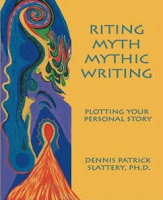 I'm enjoying reading "Riting Myth Mythic Writing: Plotting Your Personal Story" by Dennis Patrick Slattery because it meshes well with my interest in mythology as well as the concept that we learn more about ourselves while writing. He uses writing meditations and prompts, of course, rather than looking at the work a writer turns out in hopes of producing published poems or stories.
I'm enjoying reading "Riting Myth Mythic Writing: Plotting Your Personal Story" by Dennis Patrick Slattery because it meshes well with my interest in mythology as well as the concept that we learn more about ourselves while writing. He uses writing meditations and prompts, of course, rather than looking at the work a writer turns out in hopes of producing published poems or stories.Every novel and short story I've written has taught me something about myself. I think that's especially true when one writes about his or her passions and special areas of interest. Slattery uses quote from Jose Ortega y Gasset in his book's introduction that sets the tone as well as how I feel about what I like to write:
"Why write, if this too easy activity of pushing pen across paper is not given a certain bull-fighting risk and we do not approach dangerous, agile and two-horned topics."
I knew my novel Sarabande was a risk when I wrote it, for who would accept a man writing about the very personal journey of a woman, especially one that included a sexual assault? Sure, I need money like everyone else these days and would like to see a groundswell of novel sales or some big magazine checks for my short stories. But every time I write with "big sales" in mind, the writing founders.
My personal story appears too closely linked with my writing interests for me to ever write something I don't care about in hopes of having HarperCollins call. What about you? Is your writing very personal? Do you find that it always seems to press your own hot buttons or throw gasoline on your own issues?
You May Also Like
My interview with author Smoky Zeidel has been posted on Malcolm's Round Table. We talk about her new novel The Storyteller's Bracelet.I enjoyed reading River Dragon Sky and posted my review on Literary Aficionado. I think it needed a stronger plot, but the theme, place setting and characters are compelling.
Have a great weekend and make sure to include time to read.
Malcolm
Published on June 22, 2012 13:38
June 13, 2012
Short Fiction: a great place to play with alternative realities
 Childhood house and woods. In the neighborhood where I grew up, the houses on our street backed up to a fair sized wood which had two houses in the middle of it. The people in the houses never seemed to mind that many of us climbed over the fence and played along the periphery of their property. By the time I was in high school, I seldom climbed over the old fence any more.
Childhood house and woods. In the neighborhood where I grew up, the houses on our street backed up to a fair sized wood which had two houses in the middle of it. The people in the houses never seemed to mind that many of us climbed over the fence and played along the periphery of their property. By the time I was in high school, I seldom climbed over the old fence any more.But I did enjoy the privacy afforded by the wood. It was a haven for birds. A very large short-leaf pine stood just behind our back fence, framing our yard; if you knew where to look, you could see that pine from the front yard high above the roof of the house. Those trees gave the impression we actually lived IN the woods.
I always worried about a developer buying out that property and shoving an ugly subdivision--complete with noisy kids and backyard stereos--up against our older early 1950s neighborhood. This didn't happen while I lived there or even while my parents lived there. But, there's a subdivision sitting in what used to be the sacred forest. I've seen it with Google maps, including their street view which shows me every house and road--and I'm happy that I no longer live there and that I missed whoever cut down the large short-leaf pine.
As I focus on short fiction this year, I can play with alternative realities. I've placed another family in our old brick house. A young girl loves the sound of the Chuck-will's-widow in the woods and her grandmother pine tree. She gets word that the property might be sold and, as I did, worries about the fate of the birds, trees, blackberry bushes and other wonders of the wood.
I'll stipulate that she has an author behind her story who's willing to add touches of fantasy to give her a hand in figuring out how she might save the woods. Who knows whether this short story will ever see print. But it felt good writing it.
With my quantum view of reality, I believe that everything that can happen does happen. So, in some nearby universe, my favorite tree is still standing and my woods remains healthy and inviting for seventh graders, Chuck-will's-widows, bunnies and squirrels, and the other magical creatures of the Florida Panhandle.
--Malcolm
Published on June 13, 2012 10:34



